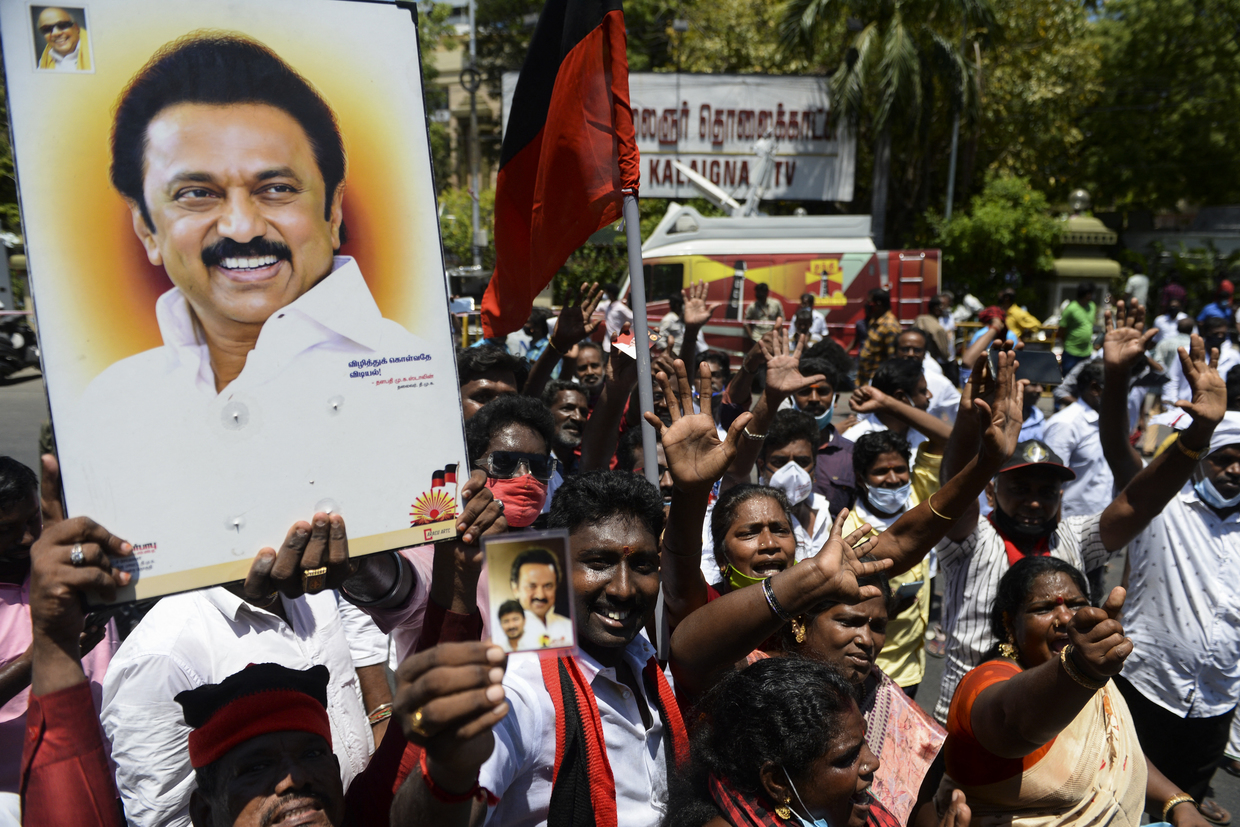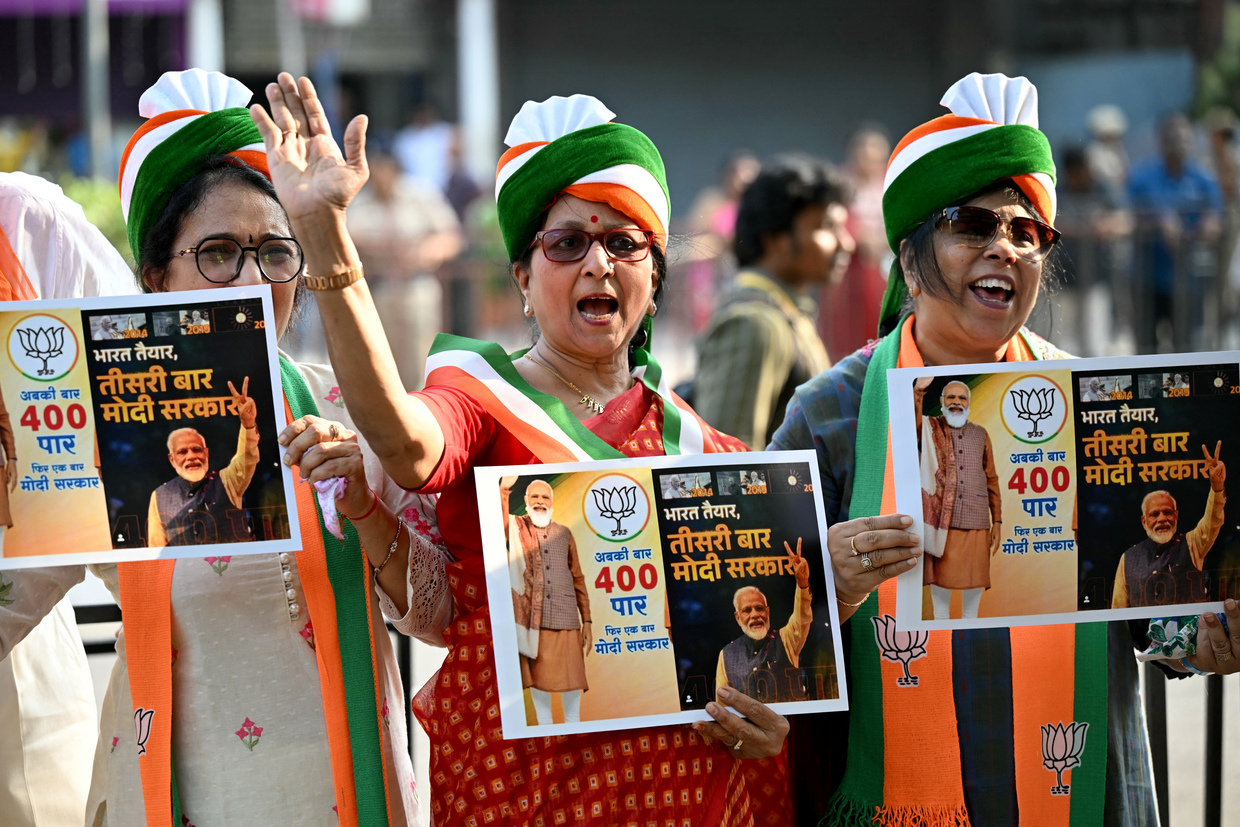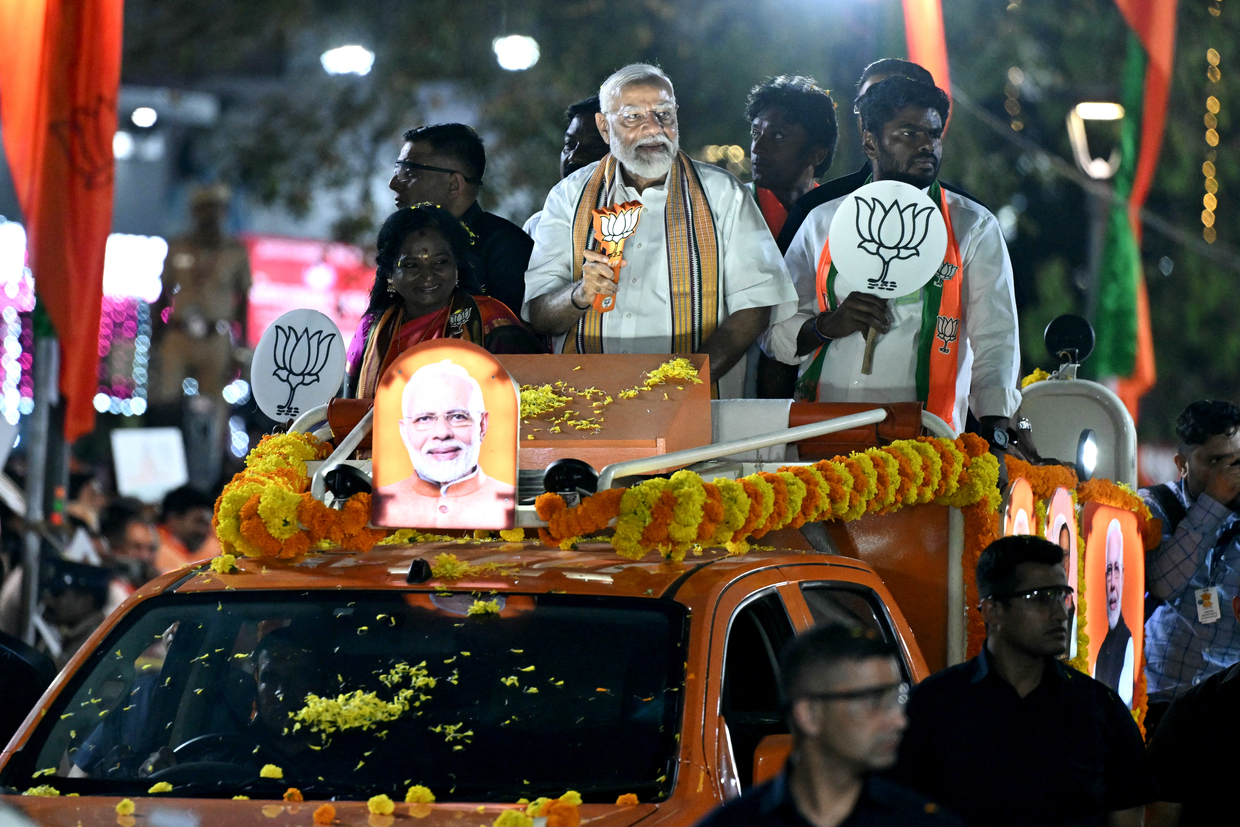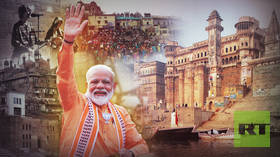Modi’s battleground: Why the south is tough terrain for the Indian leader

On April 19, the ‘deep south’ Indian state of Tamil Nadu, with an electorate of 62.3 million, voted for its 39 parliamentary seats (out of a total of 543) in the first phase of general election.
What makes 2024 stand out are the efforts of Prime Minister Narendra Modi, widely acknowledged as the nation’s most charismatic politician, using every ounce of his appeal to make a breakthrough for his party, the ruling Bharatiya Janata Party (BJP) – and its parent organization, the Rashtriya Swayamsevak Sangh (RSS) – in a state that has been immune to their charms.
Modi’s high-octane campaign in Tamil Nadu has included an unprecedented eight visits. He has had to weaponize his ideology here because Hindutva politics (denoting Hindu nationalism) has traditionally made no headway against the regional influence of Dravidian ideology. In the 2019 Lok Sabha (lower house) election, it drew a blank in the state despite expanding its majority in the rest of the nation.
Dravidian ideology is predicated on the old theory that lighter-skinned Aryans came and settled among the darker-skinned Dravidians, driving the latter to the Indian peninsula’s south. Hence, the ideology has been against Brahmin hegemony, for social justice, and for strengthening the local language against the imposition of Hindi.
The ruling Dravida Munnetra Kazhagam (DMK) is a proponent of this ideology and stands in staunch opposition to the BJP, a Hindi-proponent from the Hindi heartland.
The DMK is currently allied with the Indian National Congress (the Congress Party) in the Indian National Developmental Inclusive Alliance (INDIA), collaborating with several regional parties within the state.
In the Lok Sabha elections of 2014 and 2019, the BJP allied with the other Dravidian party, the All India Anna DMK (AIADMK). This time, however, the BJP ditched the AIADMK for several smaller regional parties.

Cultural and electoral tactics
The BJP has been employing various strategies to attract Tamil Nadu voters, focusing on the state’s strong linguistic and cultural identity. For instance, during the inauguration of a new parliament building in May 2023, a Senghol from the Chola Dynasty was installed, showcasing an effort to resonate with Tamil cultural pride.
The BJP has also attempted to connect with Tamil voters by appropriating Thiruvalluvar, the revered Tamil poet-saint, proposing the establishment of cultural centers named after the poet worldwide in their election manifesto. The party has also revived discussions around Katchatheevu – an uninhabited island that was at the center of a territorial dispute between India and Sri Lanka in the 1970s. BJP picked an emotive issue for Tamils to criticize past actions by the Congress and DMK.
Coimbatore, known as the ‘Manchester of South India’ for its textile industry, is regarded as a stronghold for the BJP in Tamil Nadu.
The city’s political significance was magnified following the 1998 bomb blasts, which led to severe Hindu-Muslim clashes. The state BJP president, K. Annamalai, is contesting from here, underlining his party’s confidence in their grassroots strength.
Modi’s frequent visits, including a roadshow in March along a 2.5km route, highlighted the strategic importance of Coimbatore in the BJP’s campaign plans.

Community response and election prospects
Despite Modi’s intensive campaign, the response from the local community is varied. Kovai Ramakrishnan, a local socio-political leader, told RT: “Though Coimbatore voted for BJP in the 1998 and 1999 elections, people want to move on from the past and are wary of potential communal disharmony.”
Journalists feel that the BJP is trying to play the caste card, as appeals to religion do not work with voters in Tamil Nadu.
A senior journalist from Coimbatore said there are certain upper caste groups in Coimbatore pledging support for the BJP candidate, and videos supporting him are widely circulated, but that by itself does not give the BJP winning numbers.
Though Modi claims that his party will win big in southern India, the situation on the ground reflects a different reality. The BJP’s claims of growth and development have not made a mark in the rural areas of Tamil Nadu.
In contrast are the welfare measures of the ruling DMK government. The Kalaignar Women Entitlement Scheme, named after former Chief Minister M. Karunanithi, provides 1,000 rupees ($12) to women in a certain economic category, free bus travel for women, and a morning meal scheme for children in all government schools. These policies have been well-received by the state’s 31.4 million female voters.
The BJP holds an edge among young voters thanks to its strong social media presence, but senior journalists and analysts believe that popularity will not necessarily translate to votes.
Modi, a persistent suitor
“The people of Tamil Nadu have become tired of the BJP’s endless and desperate efforts at wooing voters,” Tamil Nadu’s IT minister, PTR Palanivel Rajan, told RT. “It is like a persistent suitor who is tone deaf to the lack of reciprocation.”
He said that “Tamil voters, who having enjoyed the benefits of education, the experience of living in communal harmony, and the first-hand comforts of development, are unlikely to fall for these self-serving and hypocritical charades.”

“Tamil identity, culture, and community are all rooted in humanity; at its core, the social outlook of Tamil Nadu is fundamentally and diametrically opposed to the ideas of Hindutva and Hindi-based homogenization. These are the irreconcilable differences between Tamil identity and that of the BJP,” he said.
A.S. Paneerselvam, a former political editor of The Hindu newspaper, speaking to RT, commented on the ideological clash. “Ideologically, Tamil Nadu is against the BJP’s ‘One Nation One Election One Language’ policy. Tamil Nadu has always stood for diversity and historically the state has always fought for harmonious heterogeneity.”
Despite Modi’s single-handed efforts, the prevailing social, cultural, and political dynamics of Tamil Nadu present significant challenges for the party. The state’s longstanding commitment to regional identity and diversity, along with the popularity of DMK’s welfare schemes, suggest that Modi faces an uphill battle in this key southern state.














